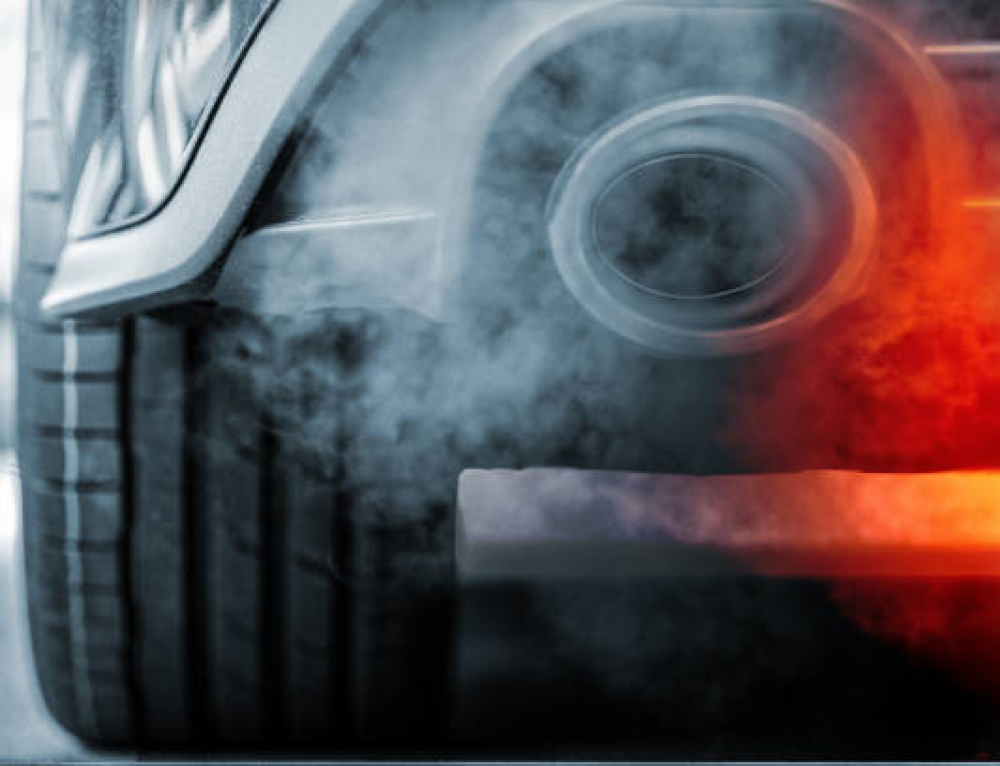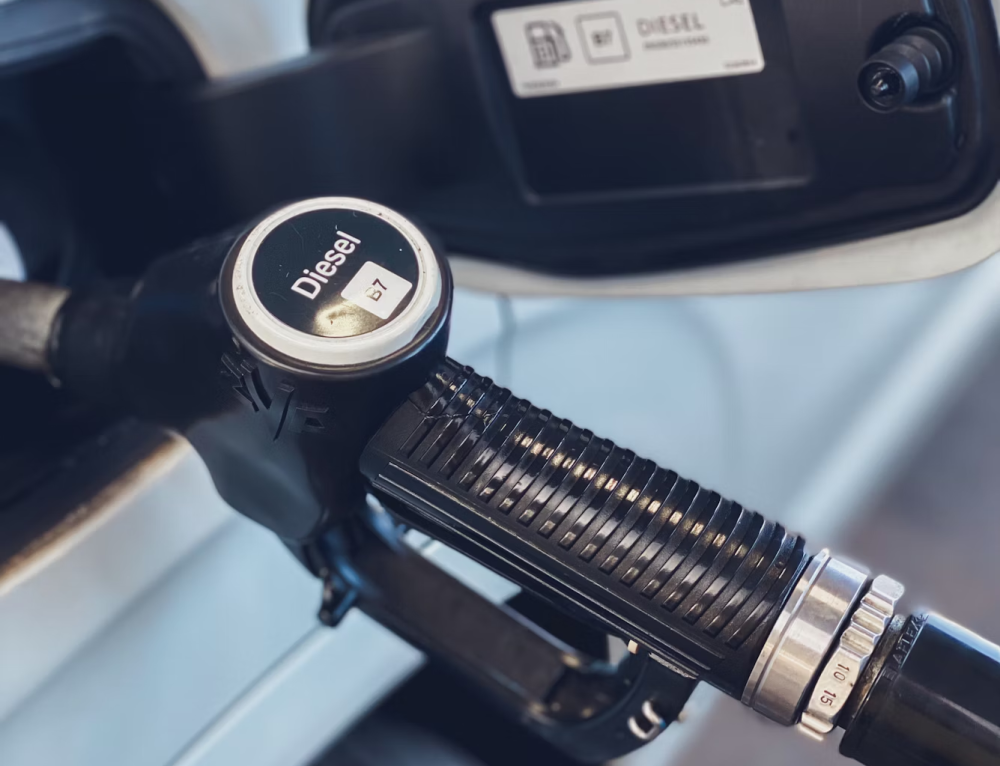
As winter approaches, you may be wondering how to keep your diesel engine in good shape in the freezing temperatures. Cold weather can cause a lot of problems for your engine, such as fuel gelling, battery drain, coolant expansion, and more. Protecting your diesel engine in cold weather requires proper maintenance and preparation. If you don’t take care of these issues, you may end up with a damaged engine or a stranded vehicle.
That’s why we have created this blog to help you understand how cold weather affects your diesel engine and what you can do to prevent it. Protecting your diesel engine in cold weather is crucial to ensure it runs smoothly throughout the winter months. You will learn how to check your battery, change your coolant, use a fuel conditioner, and other useful tips to get your diesel engine ready for winter.
Challenges of Cold Weather for Diesel Engines
1. Fuel Gelling
Diesel fuel contains paraffin wax, which can solidify and form crystals when the temperature drops below the cloud point. This can cause the fuel to become thick and viscous, clogging the fuel filter and preventing the fuel from reaching the engine. To avoid this issue, protecting your diesel engine in cold weather is essential to ensure smooth operation during winter months.
To prevent fuel gelling, diesel engine owners should use winter-grade fuel, which has a lower cloud point and higher cetane number. You should also add anti-gel additives to the fuel tank, and keep the fuel tank at least half full to reduce condensation.
2. Poor Combustion
Diesel engines rely on compression ignition, which means that the air-fuel mixture is ignited by the high temperature and pressure inside the cylinder. However, naturally, in cold weather, the air intake temperature is lower, which reduces the compression ratio and the cylinder temperature. This can result in incomplete combustion, lower engine power, higher fuel consumption, and increased emissions.
One of the key aspects of protecting your diesel engine in cold weather is ensuring proper maintenance and considering additional measures like using anti-gel fuel additives or upgrading the engine’s cooling system.
To improve combustion in cold weather, use glow plugs, which are heating devices that preheat the air in the cylinder before starting the engine. You should also avoid idling the engine for long periods, and drive gently until the engine reaches its optimal operating temperature.
3. Aftertreatment System Performance
Diesel engines are equipped with aftertreatment systems, such as diesel particulate filters (DPFs) and selective catalytic reduction (SCR) systems, which reduce the emissions of particulate matter (PM) and nitrogen oxides (NOx).
However, these systems require high exhaust temperatures to function properly. In cold weather, the exhaust temperature may be too low to activate the DPF regeneration or the SCR reaction, leading to increased PM and NOx emissions, and possible damage to the after-treatment components.
Therefore, protecting your diesel engine in cold weather is essential to ensure the optimal functioning of these systems and prevent long-term damage.
To maintain after treatment system performance in cold weather, diesel engine owners should use diesel exhaust fluid (DEF), which is a urea-based solution that helps the SCR system reduce NOx emissions. They should also monitor the DPF pressure and perform manual regeneration if needed.
How to Prepare Your Diesel Engine for Winter
Winter can pose many challenges for diesel engine owners, as low temperatures can affect various aspects of engine performance and maintenance. When protecting your diesel engine in cold weather, it’s important to prepare for the season by using winter blended fuels, ensuring your battery is in good condition, and checking your tires.
We will share some general tips on how to prepare your diesel engine for winter, as well as some specific advice on how to use winter blended fuels and how to check your battery and tires.
Ensure Adequate Lubrication for Your Diesel Engine
Lubrication reduces friction and wear and protects the engine from corrosion and contamination. However, in cold weather, the oil viscosity can increase, making it harder for the oil to flow and reach the engine parts. This can result in poor lubrication, increased engine wear, and reduced fuel efficiency.
To prevent this, you should use the right oil grade for your engine and the ambient temperature, as specified by the manufacturer. Additionally, protecting your diesel engine in cold weather involves changing the oil and filter regularly, and avoiding the use of too much or too little oil.
Use an Electric Blanket
An electric blanket is a device that wraps around the engine block and plugs into an electrical outlet. It keeps the engine warm when the vehicle is parked, making it easier to start the engine in cold weather. An electric blanket can also reduce the risk of fuel gelling, which is a common problem for diesel engines in winter.
However, you should always follow the instructions and safety precautions when using an electric blanket and never leave it unattended.
Perform Proper Water Separator and Air Cleaner Maintenance
A water separator is a device that removes water from the fuel, as water can cause corrosion and damage to the fuel system. An air cleaner is a device that filters the air that enters the engine, as dirty air can reduce engine performance and increase emissions.
Both devices are essential for diesel engine operation, but they can become clogged or damaged in winter due to moisture and debris. When protecting your diesel engine in cold weather, it is especially important to check and service these components regularly and replace them if necessary.
Pay Attention to the Fuel You Use in Winter
Winter blended fuels are specially formulated to prevent fuel gelling and freezing, and to ensure optimal engine performance in colder temperatures. Protecting your diesel engine in cold weather is crucial, and winter blended fuels have a lower cloud point and a higher cetane number, which is a measure of how easily the fuel ignites in the engine.
These properties make winter blended fuels more suitable for cold weather operations than regular diesel fuels.
However, winter blended fuels may not be enough to prevent fuel gelling and freezing in extremely low temperatures. In that case, you may need to use a winter diesel fuel additive.
A winter diesel fuel additive is a substance that you add to the fuel tank to improve the cold flow properties of the fuel. It can lower the cloud point and the pour point, which is the temperature at which the fuel stops flowing. It can also prevent the formation of ice crystals in the fuel, and improve the lubricity and stability of the fuel. A winter diesel fuel additive can significantly improve cold weather operation, but you should always use it according to the
Take good care Of Your Battery and Tires
The battery is responsible for starting the engine and providing electrical power to the vehicle.
However, in cold weather, the battery capacity and performance can decrease, making it harder to start the engine and run the electrical devices. To prevent this, you should use a battery charger or a battery maintainer to keep the battery fully charged and in good condition. You should also check the battery terminals and cables for corrosion and damage, and clean and tighten them if necessary.
The tires are responsible for providing traction and stability to the vehicle and influencing the fuel economy and safety.
However, in cold weather, the tire pressure and grip can decrease, making the vehicle harder to control and more prone to skidding and sliding. To prevent this, you should use winter tires or all-season tires, which are designed to perform better in cold and snowy conditions than regular tires. You should also check the tire pressure and tread depth regularly, and adjust and replace them if necessary.
Additionally, it’s essential to consider protecting your diesel engine in cold weather by using the right fuel additives and ensuring the engine is properly warmed up to avoid issues starting or running efficiently.
How to Prevent Fuel Gelling
Diesel fuel can thicken and form wax crystals in cold weather, causing fuel gelling and freezing. These problems can block the fuel system and reduce engine performance. To prevent these issues, protecting your diesel engine in cold weather is crucial. Diesel engine owners should do the following:
- Use winter diesel fuel blends with fuel additives that lower the gelling point of diesel fuel.
- Install block heaters to keep the engine warm in cold weather.
- Maintain the water and fuel filters regularly and keep spare ones for emergencies.
- Keep the fuel tank full to avoid condensation and water contamination.
How to Maintain Your Battery in the Winter
Cold weather reduces battery power and affects electrical current and resistance. This can lead to slow engine starts and low battery capacity. Chemical reactions in the battery also slow down in the cold. To maintain battery and electrical systems in winter, you should:
- Use block heaters to keep the engine at optimal temperature.
- Check the engine oil and glow plugs regularly for smooth cold starts.
- Keep the engine coolant at the right level to prevent overheating.
- Inspect the battery terminals for corrosion or loose connections.
- Keep the battery fully charged and use a trickle charger if needed.
- Use a battery blanket to protect the battery from the cold.
How to Keep Your Diesel Engine and Coolant System Running Smoothly in Cold Weather
Cold weather can affect your diesel engine and coolant system in various ways. Here are some tips to prevent problems and ensure optimal performance:
- Use a coolant with antifreeze properties to prevent freezing and damage to the engine. Check the coolant level and look for leaks regularly. You may also want to use a coolant heater to make starting easier in cold weather.
- Choose the right engine oil for cold weather operation. Cold weather can make the oil thicker and reduce its lubrication ability. This can affect the engine’s performance and fuel efficiency. Follow the manufacturer’s recommendations for the oil viscosity and change intervals.
- Monitor the coolant temperature gauge and avoid overheating or underheating the engine. The coolant should reach the optimal operating temperature as soon as possible. If the coolant is too cold, it can cause poor combustion and increased emissions. If the coolant is too hot, it can damage the engine components and cause leaks.
- Keep the fuel tank full to avoid condensation and water contamination in the fuel system. Water can freeze and clog the fuel lines and injectors. When protecting your diesel engine in cold weather, you may also want to use a diesel fuel additive to improve the cold-weather performance and prevent gelling. Follow the instructions on the additive package and do not overuse it.
Additional Considerations for Diesel Engine Cold Weather Protection
Regular maintenance and inspection play a crucial role in ensuring the optimal performance of diesel engines in cold weather. Proper lubrication of engine components is essential to reduce wear during cold starts, while adequate fuel system maintenance prevents fuel gelling in low temperatures.
Protecting your diesel engine in cold weather also involves giving special attention to the storage of diesel exhaust fluid (DEF), ensuring it doesn’t freeze. Additionally, using an electric blanket or heater can help warm the diesel engine and improve its efficiency during cold weather operations.
The Importance of Regular Maintenance and Inspection
Regular maintenance helps preempt potential issues before cold weather. Ensure glow plugs function properly in low temperatures. Check for blockages in the engine air cleaner in cold weather. Proper aftertreatment maintenance is crucial for performance. Always keep spare fuel filters for cold weather operation.
Taking proper care of your diesel engine during cold weather is crucial to ensure its smooth functioning and prevent any damage. One of the key aspects of protecting your diesel engine in cold weather is understanding the challenges cold temperatures present, such as fuel gelling and freezing.
Regular battery and tire checks, using winter-blended fuels, and maintaining the coolant system are just a few of the precautions you can take to protect your engine from the harsh conditions. By staying proactive and following these steps, you can help ensure your diesel engine performs optimally all winter long.
Additionally, make sure to perform regular maintenance and inspections to catch any potential issues before they become major problems. Protecting your diesel engine in cold weather is essential to ensure its longevity and performance. If you have any more questions or need assistance with your diesel engine during winter, feel free to get in touch with us at Phoenix Diesel Repair. Stay proactive and keep your engine running efficiently even in the coldest temperatures.
Frequently Asked Questions
Why is protecting your diesel engine in cold weather important?
Protecting your diesel engine in cold weather is essential to ensure the engine operates efficiently and avoids common cold-weather issues such as fuel gelling, poor combustion, and battery failure. Proper preparation and maintenance help prevent costly repairs and ensure your engine runs smoothly throughout winter.
How can I prevent fuel gelling while protecting your diesel engine in cold weather?
To prevent fuel gelling while protecting your diesel engine in cold weather, use winter-grade fuel and consider adding anti-gel additives to your fuel tank. Keeping the fuel tank at least half full can also reduce the risk of condensation, which may contribute to fuel problems in low temperatures.
What are the best practices for protecting your diesel engine in cold weather?
Best practices for protecting your diesel engine in cold weather include using winter-blended fuels, maintaining the battery and tires, regularly checking coolant levels, using an electric block heater, and ensuring proper lubrication. Additionally, consider adding fuel additives and checking the air cleaner for blockages.
How do cold temperatures affect diesel engines, and what can I do for protection?
Cold temperatures can cause fuel gelling, poor combustion, and reduced battery performance in diesel engines. Protecting your diesel engine in cold weather involves preparing by using winter-grade fuel, ensuring your battery is charged, and monitoring coolant levels to prevent freezing.
Can winter-grade fuel help in protecting your diesel engine in cold weather?
Yes, winter-grade fuel is specially formulated to resist gelling and freezing in colder temperatures. Using this fuel is one of the best ways of protecting your diesel engine in cold weather, as it has a lower cloud point and helps ensure the engine operates properly in freezing conditions.
What should I check in my diesel engine to ensure it’s ready for winter?
When protecting your diesel engine in cold weather, be sure to check the battery, coolant, fuel system, and tires. Regular maintenance, such as changing the oil and using the right fuel additives, is key to keeping your engine running smoothly throughout the colder months.





